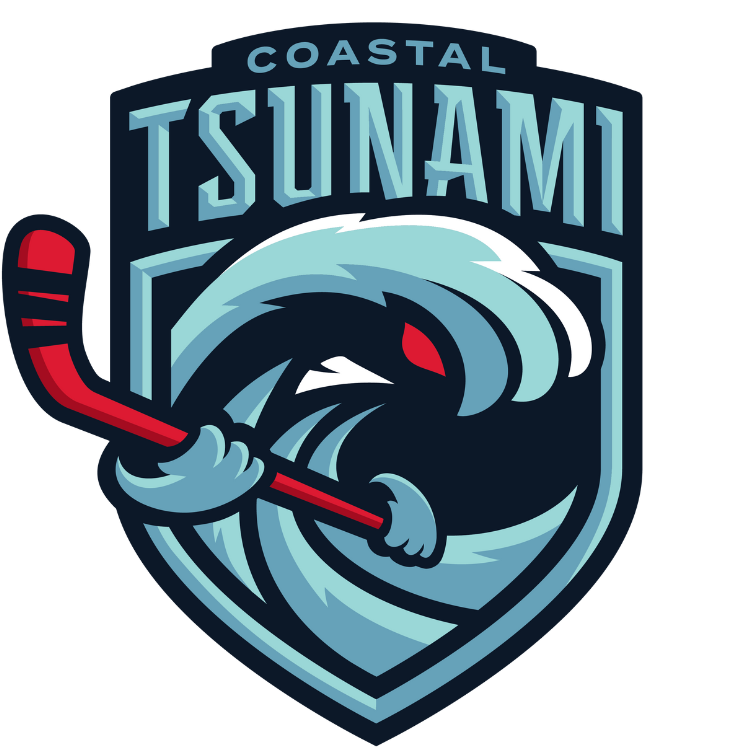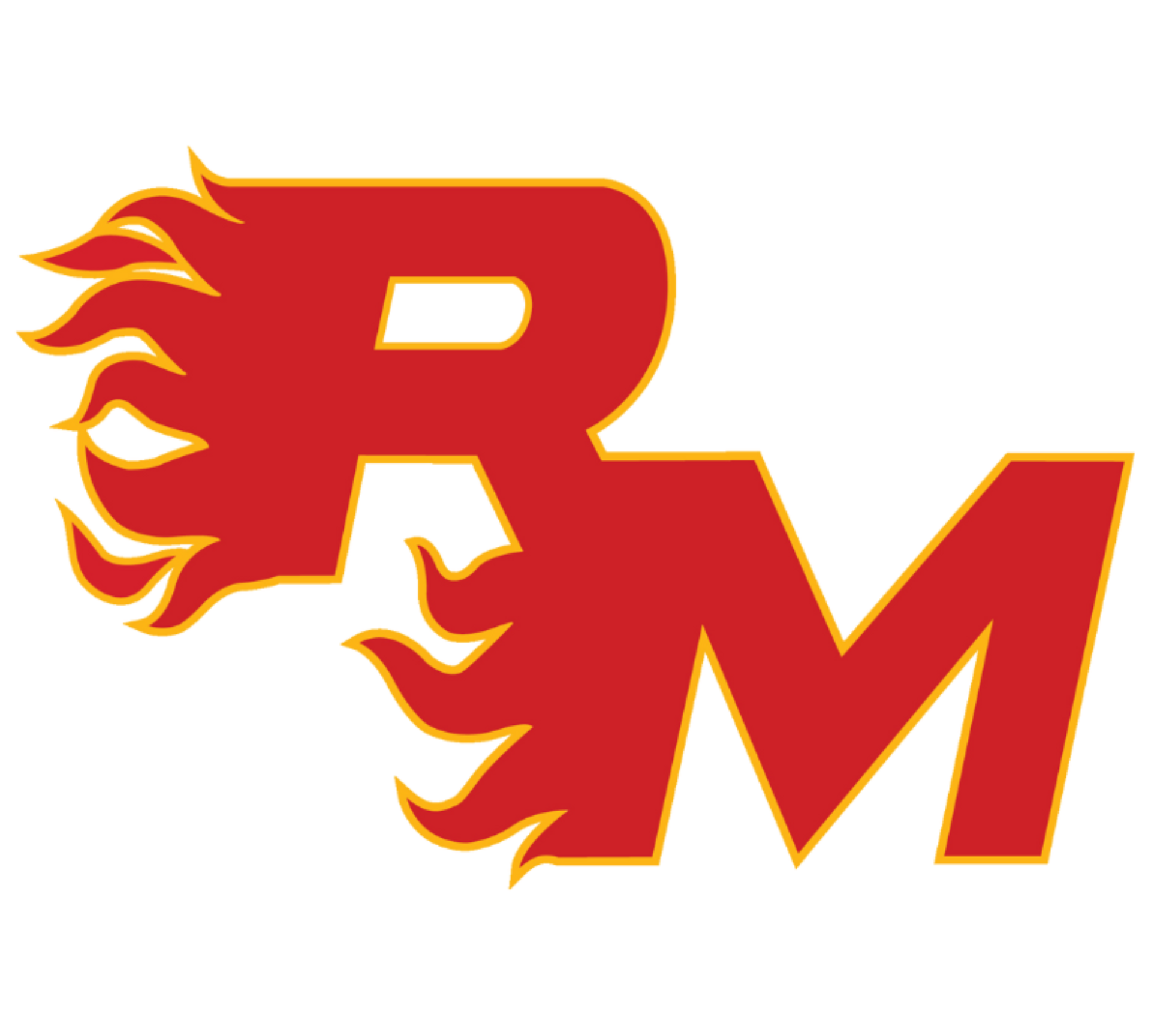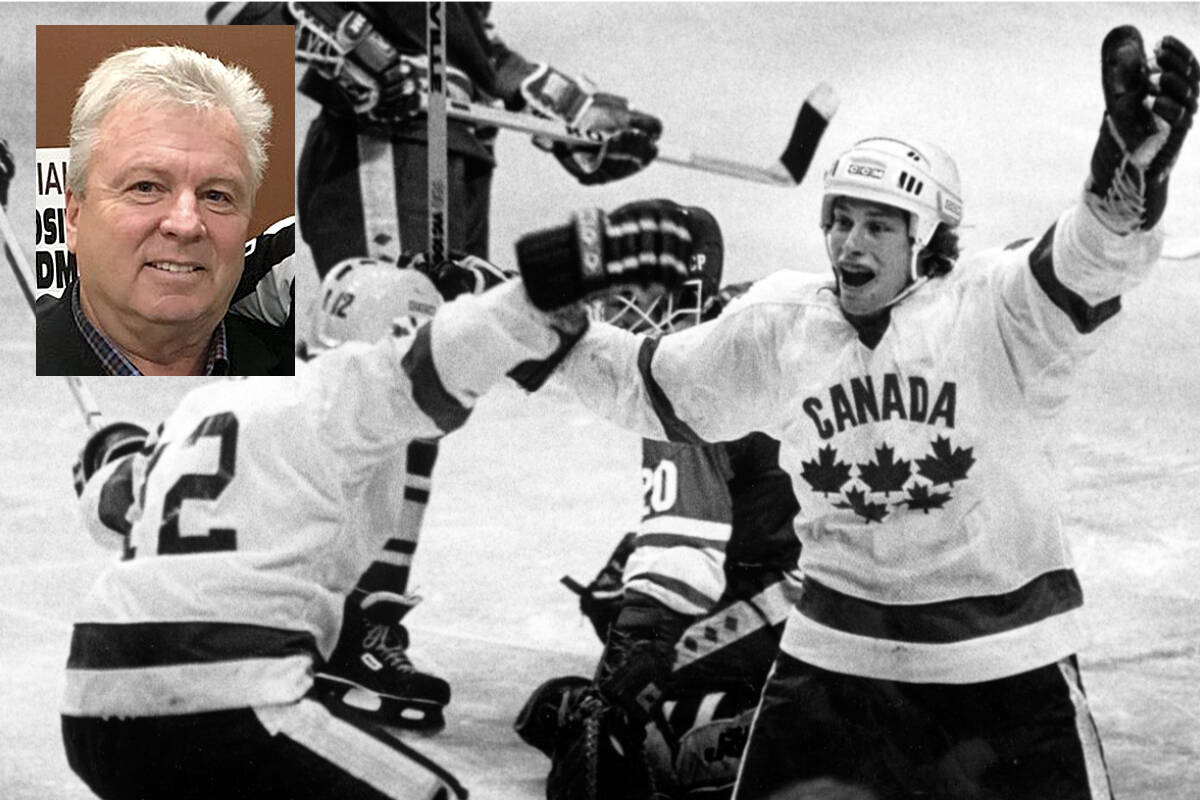Ronnie Paterson (inset) was a member of the Canadian men’s national hockey team that competed at the 1980 Olympics in Lake Placid, N.Y. (The Canadian Press photo)
Ronnie Paterson was a goaltender for Team Canada, and was in attendance for Miracle on Ice game.
With news this week that National Hockey League players will not be participating in the 2022 Winter Olympics in Beijing, Ronnie Paterson got “a little bit reflective.”
Paterson, a longtime Semiahmoo Peninsula businessman who is the former co-owner of the BC Hockey League’s Surrey Eagles and currently owner of the junior ‘B’ White Rock Whalers, was a member of Canada’s national men’s hockey team that competed at the 1980 Olympics – long before professional players were allowed to compete in the event.
The 1980 Olympics, held in Lake Placid, N.Y., was the site of one of the Olympics’ all-time biggest upsets – the famed ‘Miracle on Ice’ that saw an upstart team of American college players defeat the powerful team from the Soviet Union in the semifinals. The U.S. went on to win the gold medal with a win over Sweden.
Paterson, who was a 23-year-old goaltender with the UBC Thunderbirds when he joined the national program under famed Canadian coach Father David Bauer in the late 1970s, said his initial reaction upon hearing the news that NHL players were pulling out of Beijing was one of disappointment, even if the reasons for the move – the ongoing COVID-19 pandemic – are sound.
“There’s nothing like the feeling of representing your country. Now, there are some really, really elite players in the National Hockey League who are yet to do that on that stage,” Paterson said.
“Sure they’ve maybe played at the world juniors, or the World Cup of Hockey, or other events, but they all pale in comparison to the Olympics.
“And they only happen every four years as everyone knows, and a lot can happen in that period of time. Father Time comes for everyone, and a lot of players age out of those opportunities, so the window of opportunity is small, so I can really appreciate how disappointed some of these athletes are, even though it’s obviously the right decision based on safety and health and all those priorities.”
However, Paterson was quick to note one other thing: the NHL’s loss, is someone else’s gain.
Someone like him, perhaps.
Back in 1980, professional players were not permitted to compete in the Olympics, and the national team was instead made up of junior and university players; at 23, Paterson was one of the older players on the team.
Though the NHL may not be involved in the 2022 Games – nor did the league send players to the 2018 Olympics in Pyeongchang, South Korea – professional players are still allowed to play, so the team will be made up primarily of professionals playing in European leagues, perhaps with a few college players sprinkled in.
“I was at UBC, experiencing a couple strong seasons personally, and that created some opportunities for me to take part in the national program for about two years leading up to the Olympics, in various camps and trips, and things like that,” Paterson explained.
“If professional athletes were available to the team in 1980, I think some from our team could have made it in that circumstance, but not many.”
Canada’s team featured a handful of future NHL players, led by future hall-of-famer Glenn Anderson, defenceman Randy Gregg and forward Paul MacLean.
In order to join the national program, Paterson and the others took a year or two away from their studies, and lived and trained in Calgary, where the team was centralized.
Though he’d played plenty of games for Canada in the run-up to the Olympics – at locales all over the globe – Paterson served as the team’s third goaltender at the tournament, which meant he wasn’t in uniform for the games. He did, however, get to spend some time with the broadcast crew, which included NHL legend Ken Dryden and play-by-play man Al Michaels, the latter of whom voiced the famous line, “Do you believe in miracles?!” when the U.S. won the semifinal game.
“It wasn’t optimal – I really wanted to play – but it was still pretty cool,” said Paterson, who was in the building for the famous game, and called it “incredible.”
Canada finished out of the medals, in fifth, in Lake Placid, though Paterson said they certainly had the skill to compete with teams that finished on the podium.
“We had a really good team, and we played the Americans a lot (before the Olympics), and we were very competitive – at that time, we were arguably better than them,” he explained.
“But when it came to the Olympics, they were obviously amazing. They were playing at home, and they took advantage of the energy and the rest is history.”
Though some of his teammates, like Anderson – who was a guest of honour at a White Rock Whalers game earlier this season as a result of his friendship with Paterson – were drafted by NHL clubs and continued their pro careers, Paterson, who briefly entertained the idea of playing professionally in Europe after the Olympics, returned to UBC, where he completed his degree in education.
He never pursued that field upon graduation, however, because another opportunity arose – one that was directly linked to his Team Canada experience. Molson Breweries – a major sponsor of the national program – offered him a job at their brewery, and he spent 24 years there, working in sales.
Now, Paterson owns a number of liquor stores and pubs, in addition to the Whalers team.
“Looking back now, I just have a lot of fond memories. Would we have liked to have won? Of course, absolutely. Those U.S. players are still on the dinner circuit, serving as keynote speakers, all these years later,” he said.
“But I got an opportunity, too, and I’m still in those same two lines of work – hockey and hospitality.”
And now, 41 years later, Paterson still has one memory that sticks out above all else – wearing the Team Canada sweater.
“We travelled all over the world, and every game we participated in, you’re pulling that Canadian jersey over your head, and every time, that’s a proud moment.”


















